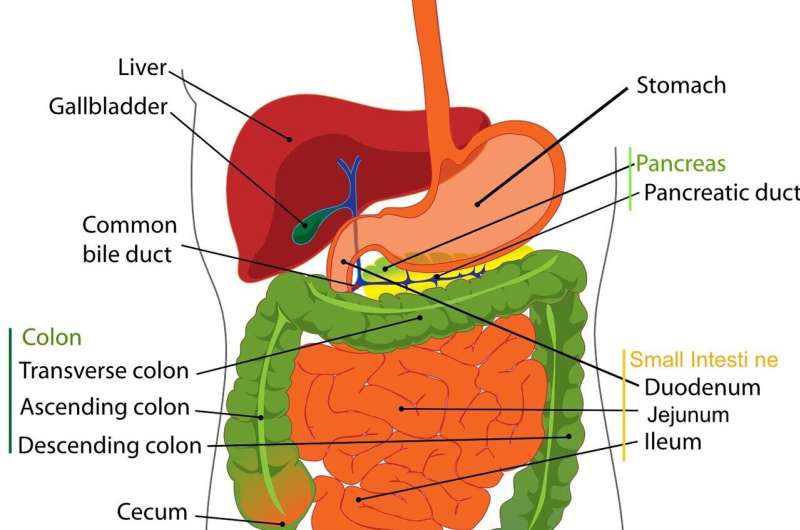This article has been reviewed according to Science X's editorial process and policies. Editors have highlighted the following attributes while ensuring the content's credibility:
fact-checked
trusted source
proofread
Video: What are gallstones?

Gallstones are hardened deposits of digestive fluid, called bile, in your gallbladder. They range in size from as small as a grain of sand to as large as a golf ball.
Dr. Irving Jorge, a Mayo Clinic general surgeon, says people who experience pain and other symptoms from gallstones usually require gallbladder removal surgery.
You experience sudden, intense pain in your abdomen or back pain between your shoulder blades—maybe even nausea or vomiting. You could have gallstones.
"Typically, symptoms of gallbladder-related pain is pain associated with meals. Usually after you eat meals with fatty foods," says Dr. Jorge.
He says there are several reasons why your gallbladder can form gallstones. The most common cause is what you eat. A diet high in fiber and low in cholesterol and fat will reduce your risk.
"Native Americans and Hispanic populations have a higher risk of developing gallstones and so do women. And as we get older, we're at higher risk of developing gallstones," says Dr. Jorge.
He says, once you have gallstones, they won't go away on their own. Recommended treatment is surgery to remove your gallbladder.
"It's an organ that people can live without and not have any long-term consequences from," says Dr. Jorge. "We take out the gallbladder not just because it has stones, but it's because it's where most stones are formed. But there is a small percentage of patients that can develop stones within the bile ducts themselves."




















